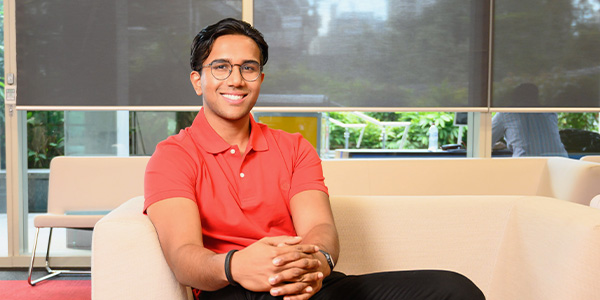Madura chats to us about his inspiration for studying engineering and the possible challenges for graduate engineers, and how to overcome them.
What inspired you to study engineering?
I have always had a natural curiosity about how things work and problem solving. Engineering is a field centred around creating solutions to complex problems that challenge our society daily.
I am passionate about making a positive impact on the world and set my eyes on pursuing a career in engineering to create innovative solutions that can make a tangible difference in people's lives.
I decided to specialise in electrical engineering due to my interest in energy, especially around renewables. I have a strong focus on energising remote and rural communities, which can significantly improve quality of life in these areas.
What do you think are the biggest challenges for graduate engineers? Or are there any barriers?
Staying current with evolving technology: graduate engineers need to stay up to date with the latest developments and innovations in their area of specialisation to remain relevant and effective.
Finding a job: while there is a high demand for engineers, finding the right job can be challenging. Graduate engineers may face stiff competition for desirable positions.
Managing work-life balance: graduate engineers may need to learn how to prioritise their time and set realistic expectations for themselves in order to avoid burnout.
Continuing education: In order to stay relevant and competitive, graduate engineers need to continue learning and developing their skills throughout their careers. This may require additional education or training, such as pursuing advanced degrees or attending professional development courses.
What have been some of your career highlights to-date?
I’m still very early in my journey as an engineer, but I’m so grateful for the various learning experiences that have further developed my skills as a young engineer. In addition to the numerous site visits and conferences, my day-to-day role has allowed me to contribute directly to major projects. I have worked on initiatives that augment our power network for developments such as the connection of large-scale renewables as well as the preparation for the upcoming 2032 Olympic Games.
My current role focuses on energising the remote communities scattered around Queensland both inland and the islands of the Torres Strait. This role not only blends technical knowledge as an engineer, but also the importance of community engagement. I have organised forums that bring together key stakeholders within the energy sector from around Australia to engage in discussions on how we can better support a Net Zero future for our remote communities.
What are your hopes for your future in the engineering profession?
I’m really looking forward to what’s ahead because this is a pivotal moment for engineers around the world as we are transitioning to a more sustainable future. I hope to further develop my technical skills, but also explore new technologies that can be implemented to further enhance the efficiencies on how we manage our network.
I am grateful for my connection to Engineers Australia as a graduate member because I am constantly taking advantage of the many events and CPD courses that are on offer. I hope to apply for Chartered Engineer within the coming years to demonstrate my competencies, but also open the opportunity to work internationally as a professional engineer.

